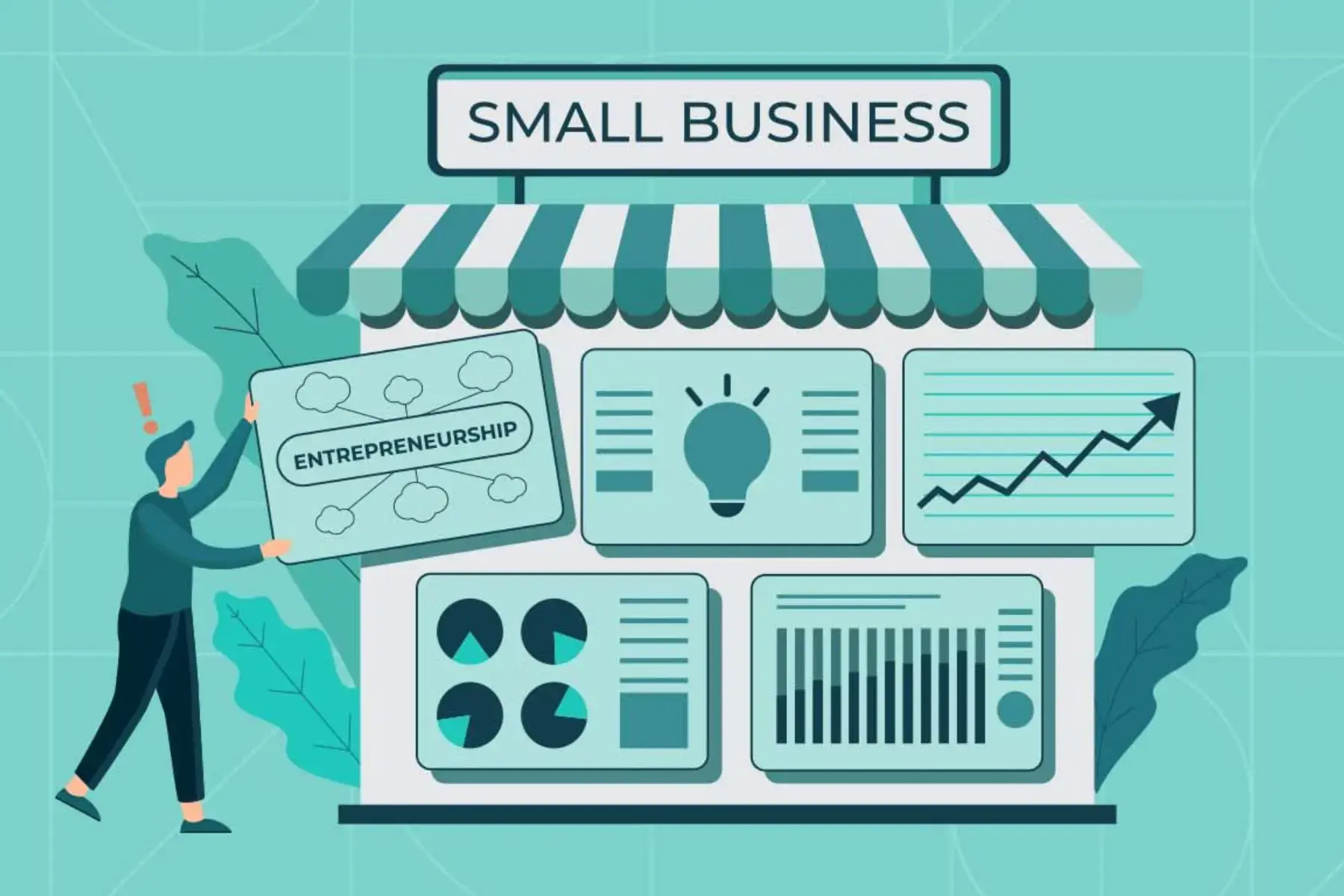Affordable Websites for Small Businesses: Making the Right Choice
Explore affordable website solutions for small businesses, covering everything from essential features to finding the best deals.
Posted by
 Sabyr Nurgaliyev
Sabyr Nurgaliyev
Introduction
Owning a small business is a juggling act. You're trying to manage finances, take care of your customers, and grow your brand—all without spending a fortune. But in today's digital age, having a strong online presence is a non-negotiable. The great news? You don’t have to break the bank to get a quality website. Let’s dive into how to find affordable websites for small businesses and what features to prioritize.
Why Every Small Business Needs a Website
1. Credibility Is Everything
In a world full of choices, trust is key. Customers are more likely to engage with businesses that have a professional online presence. Think about it—when was the last time you trusted a company without a website?
2. Visibility in a Crowded Marketplace
A website gives your business a voice in the crowded digital space. And with the right SEO strategies, you can drive organic traffic without paying a dime on ads.
How Much Should You Spend on a Website?
3. Understanding Budget Limits
Small businesses often operate on tight budgets, so understanding how much you can afford is crucial. The good news is, there are solutions out there that fit every price range.
4. Custom Design vs. Template-Based Solutions
Sure, custom designs are fancy, but they also come with a hefty price tag. Thankfully, template-based websites have come a long way in terms of design and functionality.
Features Every Small Business Website Should Have
5. Simple Navigation for Users
Your customers shouldn’t feel like they’re solving a maze when visiting your website. Keep it clean, intuitive, and user-friendly.
6. Mobile-Friendly Design
Did you know over 50% of web traffic comes from mobile devices? If your site isn’t optimized for mobile, you could be missing out on a lot of business.
7. Contact Forms and Calls to Action
If a customer likes what they see, make it easy for them to reach out. A simple contact form or a bold “Buy Now” button can be the difference between a lost lead and a sale.
8. SEO Features to Boost Visibility
Even the most beautiful website won’t get any traffic if it isn’t optimized for search engines. Ensure your website includes basic SEO features like meta tags, alt text for images, and clean URLs.
Platforms Offering Affordable Websites for Small Businesses
9. WordPress: The Flexible Giant
WordPress is a versatile platform that can accommodate any business size. With a wide range of plugins and templates, it’s one of the most cost-effective solutions available.
10. Wix: Simple and Budget-Friendly
Wix offers an intuitive drag-and-drop editor, making it ideal for business owners without any technical know-how. It’s a go-to for businesses that want a straightforward solution at a low cost.
11. Subpage.io: Quick and Easy Landing Pages
For businesses that don’t need a full-fledged website but still want an online presence, Subpage.io offers an affordable, no-coding-required option. You can create a landing page in minutes, making it ideal for collecting emails or showcasing products.
Common Pitfalls to Avoid
12. Overloading on Features
It’s tempting to want every bell and whistle, but more isn’t always better. Stick to features that add value to your business, and avoid unnecessary add-ons that could slow your site down.
13. Not Updating Your Site Regularly
Even the most affordable websites need regular maintenance. Broken links or outdated content can hurt your credibility.
FAQs
1. How much does a small business website cost?
The cost varies depending on your needs. A basic template-based website could cost as little as $100 a year, while more customized solutions can run into the thousands.
2. Can I build a website myself?
Absolutely! Platforms like WordPress and Wix make it easy to build a website without coding experience.
3. How important is mobile optimization?
It’s extremely important. With over half of web traffic coming from mobile devices, a site that isn’t mobile-friendly could lose out on potential customers.
4. What is SEO, and why is it important?
SEO stands for Search Engine Optimization. It helps your website rank higher on search engines like Google, making it easier for people to find your business online.
5. Do I need a domain name and hosting?
Yes, a domain name is your website’s address, and hosting is where your website lives online. Most platforms offer both as part of their package.
6. What’s the difference between a landing page and a full website?
A landing page is a single web page designed for a specific purpose, like capturing email leads. A full website has multiple pages and serves a broader range of functions.
Conclusion
Finding an affordable website solution doesn’t have to be stressful. With so many options available, there’s no reason any small business should go without a professional online presence. Whether you opt for a full website or a simple landing page, the key is to keep it user-friendly, mobile-optimized, and SEO-ready.
External Links:
Related Articles

Discover how small businesses can create affordable, high-quality websites. Learn about cost-effective strategies, essential features, and tools to build a robust online presence.
 Sabyr NurgaliyevNov 6, 2024
Sabyr NurgaliyevNov 6, 2024
Explore the best and most budget-friendly website solutions tailored for small businesses to thrive online.
 Sabyr NurgaliyevNov 3, 2024
Sabyr NurgaliyevNov 3, 2024
Explore budget-friendly website options for small businesses that boost visibility and functionality without breaking the bank.
 Sabyr NurgaliyevNov 2, 2024
Sabyr NurgaliyevNov 2, 2024
Learn how small businesses can create cost-effective, high-quality websites using various platforms and approaches.
 Sabyr NurgaliyevNov 1, 2024
Sabyr NurgaliyevNov 1, 2024
Explore affordable ways small businesses can build impactful websites, optimize SEO, and create a strong online presence.
 Sabyr NurgaliyevOct 31, 2024
Sabyr NurgaliyevOct 31, 2024
An in-depth look at creating affordable, effective websites for small businesses, including strategies, tips, and essential resources.
 Sabyr NurgaliyevOct 30, 2024
Sabyr NurgaliyevOct 30, 2024